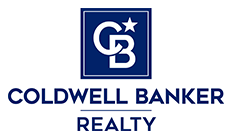Is Your Association Still Paying Property Taxes on the Common Areas?
Brevard County Real Estate News
Date Added: 2/26/2013
Pursuant to section 718.120 of the Florida Condominium Act, ad valorem property taxes are not to be assessed separately against any recreational facilities or common areas owned by the condominium association or jointly owned by its members. However, prior to January 1, 2004, neither Chapter 720, which governs homeowners’ associations, nor Chapter 193, which governs tax assessments, addressed this issue. Therefore, some homeowners’ associations still paid taxes on the common areas and each county appeared to have different rules regarding such taxation. However, on January 1, 2004, section 193.0235, Florida Statutes, became effective. The statute established uniform rules to be practiced by all property appraisers and tax collectors and required property appraisers to change the manner in which they assessed subdivisions and the lots therein.
Property taxes may not be assessed separately against common areas utilized exclusively for the benefit of lot owners within the subdivision, regardless of ownership. Therefore, even if the developer has retained title to the common areas, the parcels should not be taxed as long as the governing documents of the association or plat reveal that the parcel is to be used exclusively for the benefit of owners. Instead, the assessments for the value of the common areas must be included in the assessment for each of the lots within the subdivision that are, or will be, privately owned. The common property which should not be assessed individually includes:
- Subdivision property that is not to be owned as parcels or lots by private individuals or companies;
- Any easements which have been dedicated to the public or retained for the benefit of the subdivision; and.
- Any other part of the subdivision property that is for a drainage pond, detention or retention pond, or for the exclusive benefit of the subdivision.
To determine the legal status of real property held by the association, the property appraiser should refer to the declaration, or other governing documents of the association, and the plats. The law applies to all associations regardless of the date they were platted or planned.
If the association has received a Truth in Millage (TRIM) notice, then the association should contact the county property appraiser and the county tax collector, inform them that the property in the TRIM notice is a common area as defined in the statute and, therefore, should not be taxed individually. If the association still encounters a problem, then the matter should be referred to the association’s attorney immediately.

Nick Farinella, Realtor® - 34 Years in Business - 321-543-1685
Copyright © 2024 NicksRE.com | Created by Fencl Web Design | RETS


